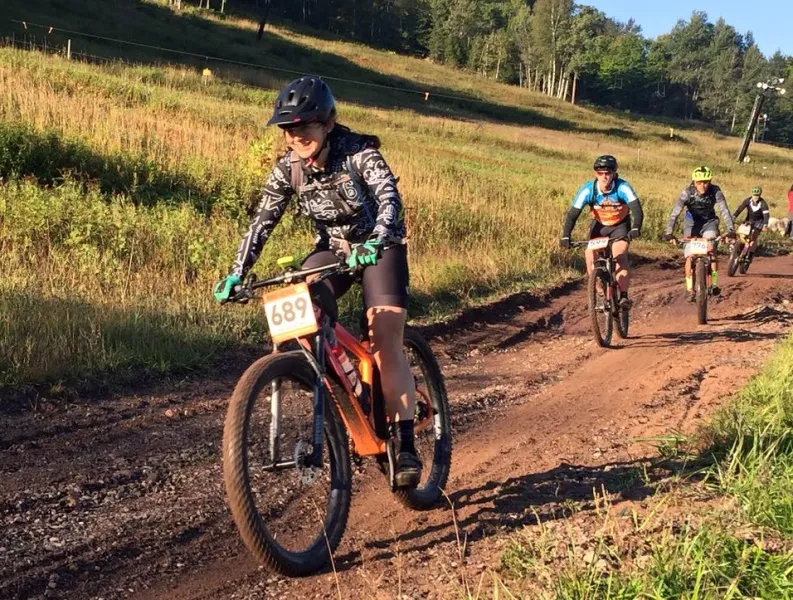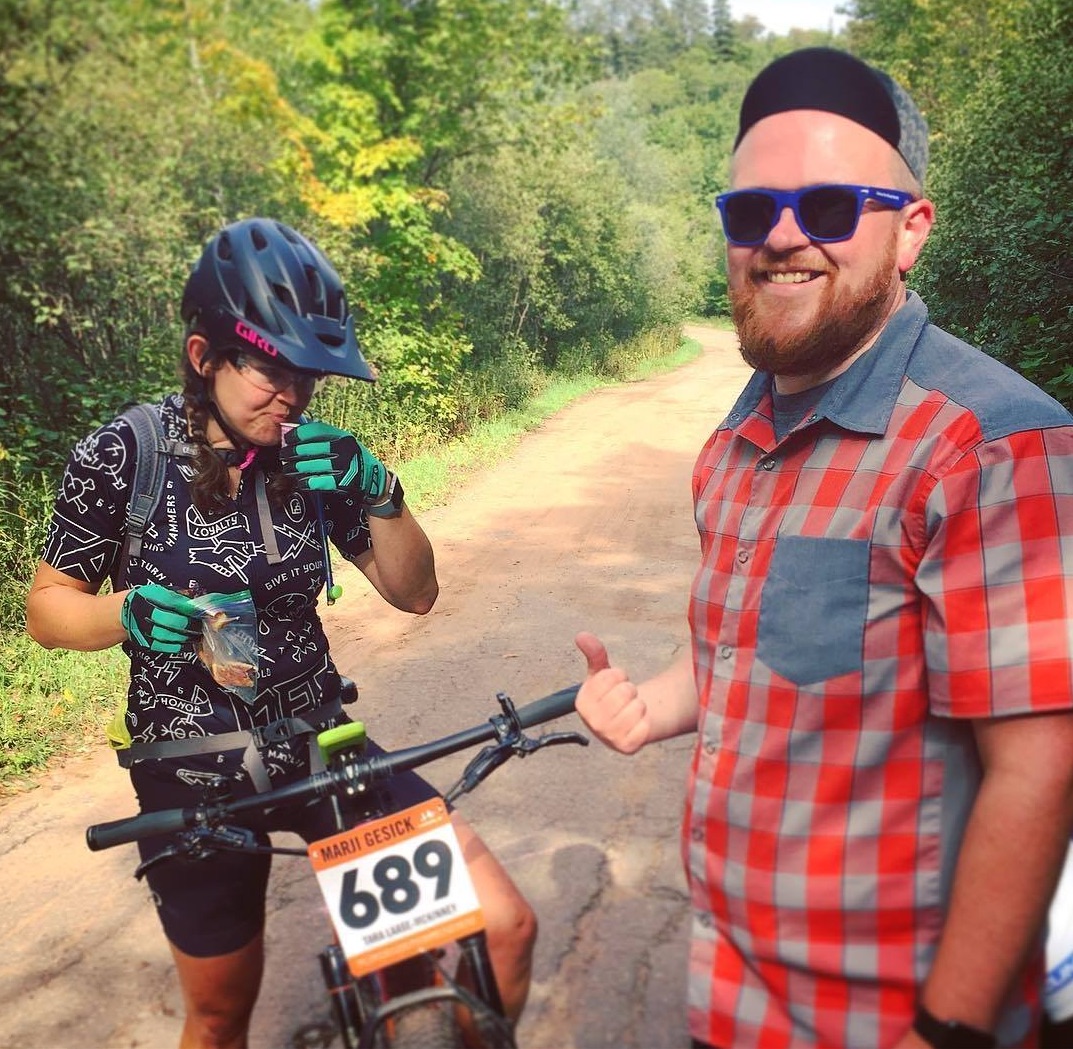NMU alumna Tara Laase-McKinney ('10 BS) will compete in this weekend's Marji Gesick 100, a grueling bike challenge that covers 100+ miles of relentless, rocky U.P. terrain and involves 12,000 feet of climbing. She gained insights on how to optimize her training and performance from students in an NMU advanced mechanical kinesiology class.
A two-time winner of the original 100-mile Marji Gesick called it “the hardest single-day race in America,” Most who attempt it fail to finish, and only a few will complete the course in the under-12 hours required to earn a coveted belt buckle. The competition has since expanded to include other long-distance biking, running and duathlon events.
Laase-McKinney completed the 2017 Marji Gesick 100 in about 20 hours and opted for the 50-mile course last year. Her goal heading into this weekend is to finish the 100 miles in 15-16 hours, barring any mechanical or weather issues. She was eager to work with Professor Sarah Breen's class last spring.
“As an alumna, I remember how great it was to have real-life scenarios to study and make recommendations on, so I was happy to volunteer,” she said. “I was also really curious to see what kind of advice the students would have for me. They gave me good ideas of different exercises to incorporate into my training, along with pacing and fueling advice. They also noticed muscle imbalances that I have, and pointed out ways to address that.”
Student Jorgen Chapin said the class gleaned helpful information from their introductory meeting with Laase-McKinney.
“She told us about her training, equipment, race strategy and previous experience. We took those factors into consideration with others that we identified through our analysis of the sport and the Marji Gesick. She had already trained for and competed in this type of event, but we were able to recommend strategies to supplement her preparation and performance.”
“We assessed all factors that were key to performing well in an ultra-endurance bike race,” said student Emily Ferroni. “That included aerobic/anaerobic power and capacity, pedaling cadence and technical riding—changing body positions for different obstacles, hills and turns. Hands-on experience is always really helpful, especially when you're applying the concepts we were researching in the class."
Ferroni said students recommended high-intensity, steady-state, strength and psychological training strategies. They also looked at proper bike fitting to achieve optimal body biomechanics, gave Laase-McKinney recommendations for load carriage and also talked to her about an incline strategy.
Breen's previous classes worked on behalf of other elite athletes, including a weightlifter, ultra runner and Paralympian kayaker.
“The students are motivated from the very first day when they meet these athletes and hear their stories,” Breen said. “They feel like they are in some way an extension of the athletes' support crews, helping them reach their goals. But not only are the students invested and want to help; they also want to show their competency and justify their recommendations in order to shine a positive light on themselves and our program.”
Breen also wanted to be among the bike racers this weekend, but a broken elbow thwarted her plan. She will instead serve on the support team, or “suffer crew,” as the Marji calls it, for undergraduate student Stacy Routsela, who is tackling the 50-mile run.
For more information on NMU exercise science programs or other Health and Human Performance undergraduate and graduate degrees, visit nmu.edu/hhp.


